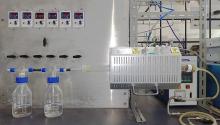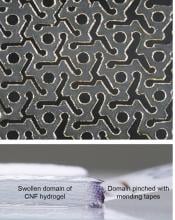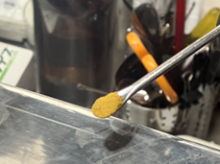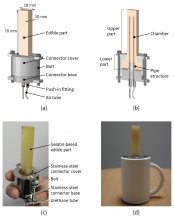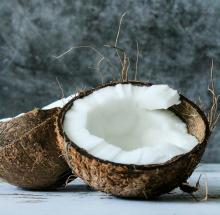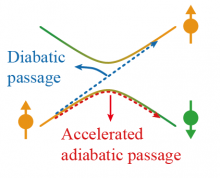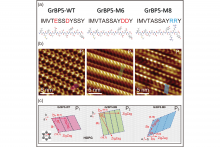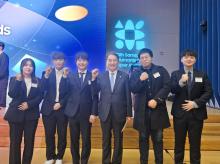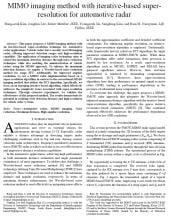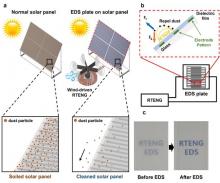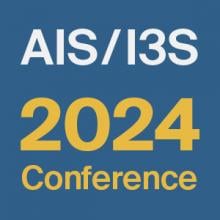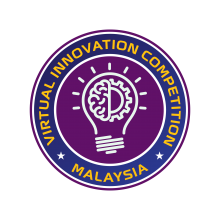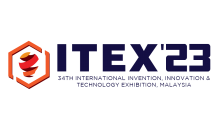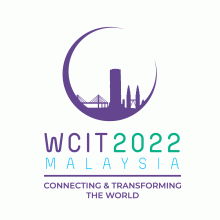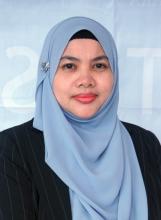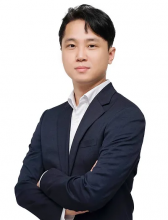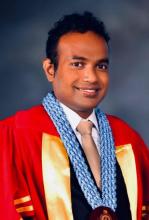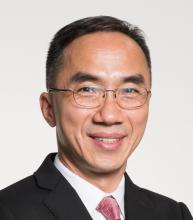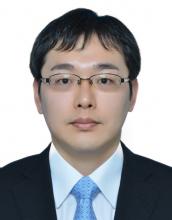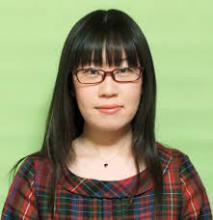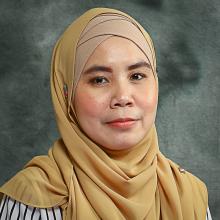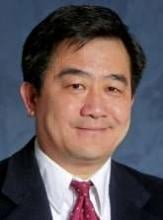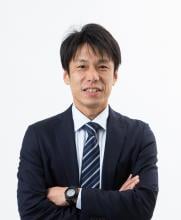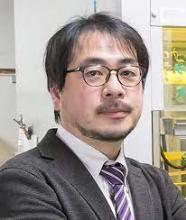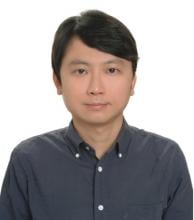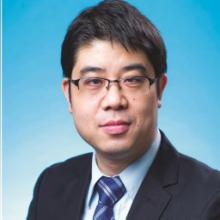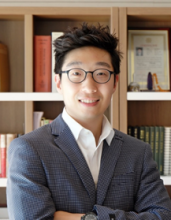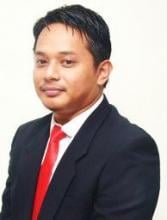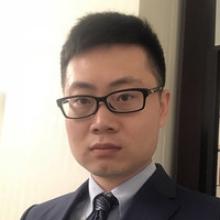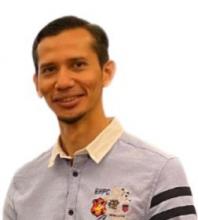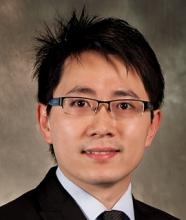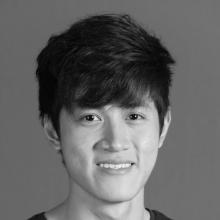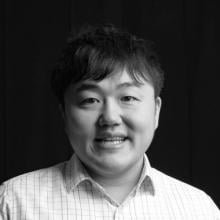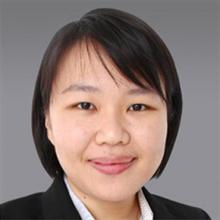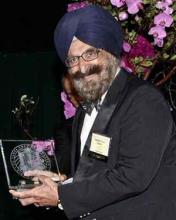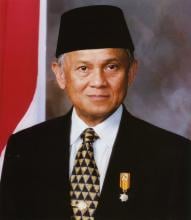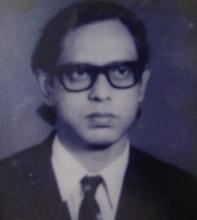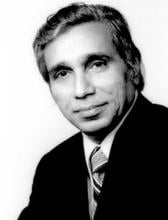Engineering & Technology
News
17 Apr 2024
Electron spin states can now be probed at much higher resolution and more efficiently, opening new opportunities in materials analysis and data processing technologies.
17 Apr 2024
Researchers from Osaka University used structured light and switchable fluorescent molecules to reduce the background light from the out-of-plane regions of microscope samples. This method allowed for the acquisition of images that surpassed the conventional resolution limit, and it may be useful for further study of cell clusters and other biological systems.
12 Apr 2024
Zika virus vaccine targets brain cancer, 120-year quest to farm lobsters, Arctic nightlife bursts with sound, Eating a robot, Molecular orientation is key & New treatment for ALS and dementia. Read all in the latest Editor's Choice.
11 Apr 2024
Laser-patterned thin films that swell into kirigami-like structures offer new opportunities in hydrogel technology.
11 Apr 2024
Trapping oxygen molecules adsorbed at defect sites in 2D semiconducting crystals offers greater control over the crystals’ electronic and photonic behaviour.
10 Apr 2024
Process that can lead to mass synthesis yields solid sulfide electrolyte with world’s highest reported sodium ion conductivity and glass electrolyte
04 Apr 2024
Researchers from Osaka University and Imperial College London have used operando optical spectroscopy in conjunction with other spectroscopic techniques to follow the oxygen evolution reaction (OER) for an iridium oxide catalyst. Using complementary techniques to probe the catalytic process at different pH values allowed them to observe the effect of the extended environment around the intermediate species involved. The findings are expected to contribute to optimizing the OER for green hydrogen production.
29 Mar 2024
Hosting of the WEEF-GEDC is expected to serve as a great opportunity to showcase the quality and achievements of engineering education in universities in Korea, including DGIST, on the global stage
26 Mar 2024
Numerical basis found for picosecond laser endpoints in effective clinical treatments with fewer complications
24 Mar 2024
- DGIST Prof. Hyuk-Jun Kwon's team has developed neuromorphic devices using ferroelectrics and two-dimensional channels.
- Similar to the human brain, they perform both computational and memory functions –– but 10,000 times faster than synapses with minimal energy consumption.
- Their application to next-generation AI semiconductor technology is anticipated.
19 Mar 2024
The 12th Starch Value Chain ASIA conference was held in Vientiane, at Crowne Plaza Hotel, from February 27 to 29, 2024. The conference encompassed four key themes: Asia’s starch markets, industrial and food-grade tapioca starch in Laos with expansion plans, sustainable climate-smart agri-technology for rice and cassava cultivation, and challenges for future growth in Asia's biogas-to-energy sector.
13 Mar 2024
Inspired by beetle cuticles, SUTD and NUS scientists have developed optical structures that can produce vibrant, iridescent and completely biodegradable colours using chitin – the world's second most abundant organic material.
11 Mar 2024
Japanese researchers have broken new ground by creating an edible robot and examining the unique experience of eating it while it moves. This robot, made of gelatin and sugar, pushes the boundaries of how we interact with food and technology. The study delves into the sensory and psychological aspects of consuming a moving robot, offering fresh perspectives on the convergence of robotics with culinary arts and medical applications.
08 Mar 2024
An international multidisciplinary team of researchers from Singapore, India, Malaysia and Indonesia are breaking boundaries in 3D Printing. They have developed Coir Fiber Polymer Composites with enhanced strength, presenting a new and sustainable way for applications in food and medical packaging.
05 Mar 2024
SANKEN researchers achieved the acceleration of adiabatic evolution of a single spin qubit in gate-defined quantum dots for the first time. After the pulse optimization to suppress quasistatic noises, the spin flip fidelity can be as high as 97.5% in GaAs quantum dots. This work may be useful to achieve fast and high-fidelity quantum computing.
28 Feb 2024
In a study recently published in the journal SMALL, a weekly peer-reviewed scientific journal covering nanotechnology, published by Wiley-WCH, Germany, researchers from Nano Life Science Institute (WPI-NanoLSI), Kanazawa University, Japan, collaborating with Professor Sarikaya, Seattle, USA, used frequency modulated atomic force microscopy to reveal the molecular architecture of genetically designed and point mutated peptides and their self-organizations each forming single-molecule thick, distinct biological crystals on atomically flat graphite and MoS2 surfaces, offering a potential platform for hybrid technologies such as bioelectronics, biosensors, and protein arrays.
26 Feb 2024
Magnetic nanorobots delivering nerve cells to targeted tissues could potentially be used to repair damaged brain tissue, as well as other organs.
26 Feb 2024
Experimental analysis and computer simulations reveal how woven fabric composite materials are deformed by heat.
26 Feb 2024
Touch sensors that don’t even need direct contact offer new sensitivity for robotic 3D structure recognition and wireless transmission of data.
26 Feb 2024
Analysis of materials can be done quicker and with less expertise with the help of proven machine learning techniques established in biomedical fields.
26 Feb 2024
Researchers have developed a proof-of-concept system that allows robotic experiments to run without any human intervention.
26 Feb 2024
Researchers have developed an AI-driven system that can design novel molecules with any desired properties and suggest methods to create them using readily available materials.
26 Feb 2024
Researchers have combined machine learning with robotic process automation to speed up and simplify a time-consuming process.
25 Feb 2024
Fibre-reinforced composites, prone to internal damage, benefit from fibre hybridisation. Using ductile fibre glass mesh (FGM) in ramie/FGM composites, this study shows improved damage resistance, load-bearing, and deformation capacity.
24 Feb 2024
- DGIST, which is celebrating its 20th year of establishment, won 1 grand prize, 2 silver prizes, 1 bronze prize, and 2 participation prizes at the 30th Samsung Humantech Paper Award
24 Feb 2024
- Utilizing ultra-high-resolution signal-processing technology to enhance imaging capabilities in traditional radar devices with lower resolutions.
- Excellence of research achievements recognized in research paper accepted at ICASSP 2024, a globally recognized society for signal processing, and IEEE Antennas and Wireless Propagation Letters, a respected scholarly journal in relevant disciplines.
24 Feb 2024
- Research team developed a high-output friction electrification energy generator operated by wind energy
- Nano Technology has published this technological breakthrough for preventing and removing surface contamination on self-generating solar cells using friction electrification power generator
23 Feb 2024
A new technique allows researchers to map how the cellular “skeleton” adapts to external stress.
19 Feb 2024
Standing at the forefront of technological evolution, the Malaysia Technology Expo (MTE) 2024, taking place from 22-24 February at the World Trade Centre Kuala Lumpur, stands out as a crucial hub for innovation, inspiration, and intellect. We extend a warm invitation to everyone, from tech enthusiasts to industry experts, to join this impressive showcase of technological wonders and pioneering breakthroughs.
Events

15 Aug 2024 to 17 Aug 2024
SustainAsia Week 2024 unites key components—SETA 2024, Sustainable Mobility Asia 2024, Solar+Storage Asia 2024, and FTI Energy Expo.

06 Nov 2024 to 07 Nov 2024
Back for its 9th edition, EDUtech Asia is once again bringing together the leading minds across Asia to reimagine the future of education with the power of tech.
01 Aug 2024 to 04 Aug 2024
The AIS-I3S 2024 is a leading conference that brings together academic leaders, thought leaders, engineers, students, and visionaries from the growing network of sensors and AI communities.

16 May 2024 to 17 May 2024
Dive into the future of technology at ITEX 2024, where "Generative AI" takes centre stage, revolutionising how we approach Artificial Intelligence (AI). This groundbreaking theme shifts away from the ordinary, showcasing AI's power to create entirely new content and solutions.
01 Mar 2024 to 31 May 2024
Featuring innovations from diverse fields and streams, VIC 2024 provides an opportunity for educators, students, and the public to participate and showcase their innovations and designs through a digital platform.
22 Feb 2024 to 24 Feb 2024
Discover the future at the Malaysia Technology Expo 2024 (MTE 2024), where innovation takes center stage, and tomorrow's possibilities become today's reality.
19 Dec 2023 to 21 Dec 2023
Embrace Innovation and Illuminate the Future with MTE 2023
Sustainable Energy and Green Technology International Innovation
Awards
31 Oct 2023 to 02 Nov 2023
Experience TechInnovation 2023, held at Marina Bay Sands from October 31 to November 2. Explore themes of Sustainability, Health and Well-being, and AI in Healthcare.
04 Oct 2023 to 06 Oct 2023
The 27th World Congress on Innovation & Technology (WCIT 2023) and the 6th International Digital Economy Conference Sarawak (IDECS 2023) are two major events in the global tech industry.

24 Aug 2023
Using Data for Sustainability: An evening of Short Talks and Networking

11 Sep 2023 to 12 Sep 2023
Jointly organised by the Hong Kong Productivity Council and leading information security organisations in Hong Kong, The Cyber Security Summit (CS Summit) is the flagship cyber security summit in Hong Kong, with the aim to provide participants with the latest information on security trends and developments.

04 Oct 2023 to 05 Oct 2023
Innovators and government officials will gather together to share insights on improving learning outcomes across the region alongside an expo showcasing some of the world’s best EdTech solutions.
02 Aug 2023
EDUtech Indonesia 2023 brings together school leaders, educators, and policymakers to share and learn, make new connections, and generate ideas and collaborations that lead to better teaching and learning outcomes.

10 May 2023 to 11 May 2023
EDUtech Malaysia 2023 Roadshow brings together school leaders, educators and policymakers to share and learn, make new connections, and generate ideas and collaborations that lead to better teaching and learning outcomes.
11 Aug 2024 to 16 Aug 2024
Participatory Design Conferences (PDC) have been held every two years since 1990 and have formed an important venue for international discussion of the collaborative, social, and political dimensions of technology innovation and use.

19 Apr 2023 to 20 Apr 2023
EDUtech Philippines 2023 brings together school leaders, educators, and policymakers to share and learn, make new connections, and generate ideas and collaborations that lead to better teaching and learning outcomes.

17 Apr 2023 to 20 Apr 2023
To achieve Net Zero, the governments of the UK and Singapore are targeting ambitious carbon reduction goals, and electromobility has emerged as a key strategy. Now, Newcastle University (UK) and ERI@N (Singapore) are jointly hosting an international event, known as the Electromobility symposium, in Singapore to debate and discuss experiences in implementing land transport electrification in Singapore and the UK, evaluate policy landscapes, and identify successes and obstacles to inform future strategies.
26 Jul 2023 to 30 Jul 2023
BIO Asia–Taiwan is Asia's largest biotech networking event, and is jointly organized by the global Biotechnology Innovation Organization (BIO) and the Taiwan Bio Industry Organization (Taiwan BIO).
08 Nov 2023 to 09 Nov 2023
Asia’s largest conference and exhibition for educators and EdTech providers
11 May 2023 to 12 May 2023
ITEX is the Asia’s Leading Invention, Innovation and Technology Exhibition, targeted at securing investment, manufacturing and commercialisation prospects and partners. The exhibition features inventions across 15 classifications related to innovation or technology

01 Mar 2023 to 02 May 2023
Do you have what it takes to be the GAME CHANGER?
30 Jan 2023 to 31 Jan 2023
Discover advances in AI, machine learning, and deep learning from the world's leading innovators.
16 Mar 2023 to 18 Mar 2023
Malaysia Technology Expo 2023 Goes Hybrid! Since 2001, MTE has been celebrating outstanding work by innovators, researchers, scientists, students and entrepreneurs worldwide.
09 Nov 2022 to 10 Nov 2022
Theme: Inspiration in Education. Join us at Asia’s largest education conference & exhibition and accelerate a change in education across Asia.
17 Oct 2022 to 21 Oct 2022
The event is the first in the region focused on recognizing innovations, initiatives, programmes and ideas which contribute to sustainability, eradicating poverty, improving well-being, protecting our planet, and building peace and prosperity.
13 Sep 2022 to 15 Sep 2022
Known as the Olympics of the World’s Tech Industry, WCIT2022 MALAYSIA sets out to be the gateway to Southeast Asia while connecting the world – a definitive global event of technology businesses.
26 Oct 2022 to 28 Oct 2022
Asia Clean Energy Summit (ACES) is the region's leading summit and exhibition focusing on clean and renewable energy growth and adoption, technology, policy and finance supported by leading government agencies, research institutes and industry.

14 Sep 2022 to 15 Sep 2022
EDUtech Thailand returns for its 2nd edition on 14-15 September to bring together the education community across Thailand.

18 Aug 2022 to 20 Aug 2022
Participatory Design Conference (PDC) is a world-leading venue and an ACM SIGCHI conference, bringing together the latest debates in the collaborative and equitable design of technology, services and socio-technical systems.

04 Aug 2022 to 05 Aug 2022
Back for its 3rd edition on 3-4 August 2022, EDUtech Indonesia will once again, bring together the education community in Indonesia to inspire the next generation.
Researchers
Norhafezah binti Kasmuri has obtained her Degree in Civil and Environmental Engineering from Universiti Kebangsaan Malaysia in 2001. She has received her Master of Science in Water Resources Engineering and Management (WAREM) from Universitat Stuttgart, Germany in 2004. She has completed her study of Doctor of Philosophy in Chemical Engineering from Swansea University, Wales, the United Kingdom in 2014. She has been serving UiTM since August 2014 as a senior lecturer at the School of Civil Engineering, College of Engineering, Universiti Teknologi MARA, Shah Alam.
Professor Madhu Bhaskaran is a Fellow of the Australian Academy of Technology and Engineering. She is a multi-award winning electronics engineer and innovator. She proudly co-leads Women in STEMM Australia.
Professor Dae-hyun Nam is dedicated to advancing electrocatalysts for sustainable energy conversion and storage. By leveraging expertise in materials science, engineering, and chemistry, he aims to address pressing energy and environmental challenges, paving the way for a sustainable future.
Ts. Uganeeswary Suparmaniam, AMIChemE (UK) is a multiple award-winning young scientist, sustainability advocate, and climate activist attached to the HICoE-Centre for Biofuel and Biochemical Research, Institute of Self-Sustainable Building, PETRONAS University of Technology, Malaysia.
Sierin Lim is an Associate Professor of Bioengineering at the School of Chemistry, Chemical Engineering and Biotechnology and the Associate Dean (Global Partnerships) at the Graduate College of Nanyang Technological University, Singapore (NTU). Her research group focuses on the design and engineering of biological entities for applications in health and the environment. She is the co-founder of Women@NTU, Society of Women in Engineering (SWE@SG) and Promotion of Women in Engineering, Research and Science (POWERS) programme.
Taweechai Amornsakchai is an Associate Professor at Mahidol University. With a Ph.D. in Polymer Physics, his research focuses on reinforcing plastics with pineapple leaf fiber and exploring pineapple stem starch for biodegradable packaging.
Chameera Udawattha, a pioneering architect and researcher, investigates eco-friendly construction materials, exploring alternative solutions for construction and building issues. His work promotes sustainable building practices.
A/Prof Matthew Tan is a Food Security Specialist and an Aquaculture veteran with more than 20 years’ experience in the Agritech Industry.
He is currently driving several sustainability projects in the area of Carbon Neutral Engineering and specializes in Aquaculture & Agriculture carbon credit & sequestration with regards to regenerative & restorative activities in the areas of biodiversity, CSR aquaculture and use of climate smart technologies with the aim to develop true impact projects to reduce carbon emissions, plastic waste, protect biodiversity, and drive investment into local communities as he assist companies with their Carbon Transition Strategy and Planning.
Dr Fabien Grasset is a Research Director at the Centre national de la recherche scientifique (CNRS) and currently serving as Director of Research for Rennes Institute of Chemical Sciences (ISCR). His areas of expertise include materials chemistry, solid-state chemistry, nanotechnology, nanoparticles, optical coatings and thin films.
Taishi Yokoi is an Associate Professor of the Institute of Biomaterials and Bioengineering at Tokyo Medical and Dental University. His research areas include biomedical engineering, inorganic compounds and inorganic materials chemistry.
Dr Naoka Nagamura is senior researcher at the National Institute for Materials Science (NIMS) and visiting associate professor at Tokyo University of Science. She researches advanced materials, electrochemistry and photoemission spectroscopy.
Ts Dr. Siti Kudnie Sahari is a senior lecturer at the Department of Electrical and Electronic Engineering, Faculty of Engineering, Universiti Malaysia Sarawak (UNIMAS). Her current research interests include thin film, advanced semiconductor materials, semiconductor processing and solar devices.
Professor Alex Jen Kwan-yue is Chair Professor of Materials Science and Director of the Hong Kong Institute for Clean Energy at the City University of Hong Kong (CityU). His expertise includes the use of molecular engineering and self-assembly for hybrid materials.
Dr. Hiroki Ago is a Distinguished Professor of the Global Innovation Center at Kyushu University. His research focuses on nanomaterials, particularly graphene and related 2D materials, and their applications.
Prof. Hiroshi Yabu is a Professor and Principal Investigator at the Advanced Institute for Materials Research (WPI-AIMR) at Tohoku University. His research interests include self-organization, biomimetics, and bio-inspired materials for energy and low environmental impacts.
Dr. Zong-Hong Lin is a Professor at the Institute of Biomedical Engineering, National Tsing Hua University and at the Department of Biomedical Engineering, National Taiwan University.
Dr. An is an associate professor at the School of Energy and Environment, City University of Hong Kong (CityU), where she also heads the Water and Membrane Technologies Laboratory.
Her current research focuses on the synthesis of semiconducting polymers for organic electronics and has published >100 papers in this area of research.
Prof Yang obtained his bachelor degree from Peking University in 2001, and PhD from Princeton University in 2007. His research interest includes the development of advanced alloys, including metallic glasses, high entropy alloys, low dimensional metals/ceramics and metamaterials.
Minseok S. Kim is an Assistant Professor of New Biology at Daegu Gyeongbuk Institute of Science & Technology (DGIST)
Dr. Nor Aiman Sukindar has joined International Islamic University Malaysia in 2019 and currently working as Assistant Professor in Manufacturing and Materials Department and at the same time holding a position as Chairman of the Advanced Manufacturing and Material Research Unit (AMTech). Before joining IIUM, Dr. Aiman was working with Politeknik Kuching Sarawak for more than seven years from 2011 until 2019.
Dr. Aiman has extensive experience in research pertaining to additive manufacturing technologies including the design and development of 3D printers, fabricating scaffold structures for bone replacement using biomaterials, optimization printing parameters, and any other related field. Dr. Aiman was awarded grants from industries and the government including PPRN, Tin Grant, and Sponsored research grant.
Recently, Dr. Aiman won several awards including a silver medal in Asia Innovation Festival 2022, Gold Medal in RITEC 2021 Competition in 2021, and a silver medal and Outstanding Award in SDG MTE 2021 Competition also in 2021.
Hoe Joon Kim is currently an Associate Professor in the Department of Robotics & Machatronics Engineering at Daegu Gyeongbuk Institute of Science & Technology (DGIST)
Dr. Yu Xinge is currently an Associate Professor at the Department of Biomedical Engineering at City University of Hong Kong.
Prof. Yang Yong's primary research interest is in the development and mechanical behavior of advanced structural materials, such as metallic glasses and high entropy alloys. His recent research also extends to mechanics of flexible electronics and hydrogels.
Ahmad Zaidi research area is in High Voltage specificly on Partial discharge on power cable. He is senior lecturer at Faculty of Electrical Technology Engineering UniMAP, Malaysia
Dr Chris Tsang Yiu-fai is an Associate Professor of the Department of Science and Environmental Studies and Assistant Dean of Graduate School at The Education University of Hong Kong (EdUHK).
Robert E Simpson is an Associate Professor at the Singapore University of Technology and Design (SUTD). Rob’s research interests are focused on designing new materials for applications in electronics, photonics, data storage, and biosensing.
Mr. Lee Cheng Pau is currently pursuing his Ph.D in the Singapore University of Technology and Design (SUTD) focusing on 3D Food Printing.
Dr Michinao Hashimoto's research interest is on low-cost device fabrication and their application in point-of-care setting.
Dr Lo Swee Won is currently a senior lecturer at the School of Business, Singapore University of Social Sciences
Giants in history
Sir Mokshagundam Srinivasa Shastry Vishveshwarayya (15 September 1860 – 14 April 1962) is widely regarded as India’s most outstanding engineer. In a career that spanned almost his entire life, Vishveshwarayya played a pivotal role in several engineering projects, including designing the Krishnarajasagara dam that is still the source of irrigation and drinking water for parts of Karnataka today.
Chinese physicist Xie Xide (19 March 1921 – 4 March 2000) was an influential educator and one of China’s pioneer researchers of solid-state physics.
Physicist Narinder Singh Kapany (31 October 1926 – 4 December 2020) pioneered the use of optical fibres to transmit images, and founded several optical technology companies. Born in Punjab, India, he worked at a local optical instruments factory before moving to London for PhD studies at Imperial College. There, he devised a flexible fibrescope to convey images along bundles of glass fibres.
Charles Kuen Kao (Nov. 4, 1933 to Sept. 23, 2018) was an engineer who is regarded as the father of fibre optics. His work in the 1960s on long distance signal transmission using very pure glass fibres revolutionized telecommunications, enabling innovations such as the Internet.
Bacharuddin Jusuf Habibie (25 June 1936 – 11 September 2019) was an Indonesian engineer who was President of Indonesia from 1998 to 1999.
Abdus Suttar Khan (c. 1941 – 31 January 2008) was a Bangladeshi engineer who spent a significant part of his career conducting aerospace research with NASA, United Technology and Alstom.
Rajeshwari Chatterjee (24 January 1922 – 3 September 2010) was the first female engineer from Karnataka in India.
Fazlur Rahman Khan (3 April 1929 – 27 March 1982) was a Bangladeshi-American structural engineer and architect who invented the tube principle, which formed the basis for modern skyscraper design.
Lin Lanying (7 February 1918 – 4 March 2003) was a Chinese material engineer remembered for her contributions to the field of semiconductor and aerospace materials. Lanying was born into a family who did not believe in educating girls and she was not allowed to go to school.
Gregorio Y. Zara (8 March 1902 – 15 October 1978) was a Filipino engineer and physicist best remembered for inventing the first two-way video telephone. Zara’s video telephone invention enabled the caller and recipient to see each other while conversing, laying the foundation for video-conferencing


